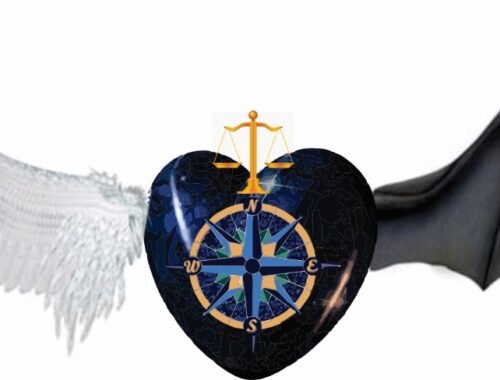
Thoughts on Ukraine, Part 7: The Joint Corporatist Scenario
Figure Vladimir Putin and Xi Jinping pose for a photograph before their talks in Beijing, China. Photograph: Ramil Sitdikov/AP
Part 6 laid out a most dangerous scenario and a most likely scenario for the events in Ukraine. This scenario centers on a joint China-Russia corporatism strategy to expand their influence and power. Later that day, I came across an interesting article on The Economist about changing geopolitical structures that also centered on a China-Russia partnership. I found the references to geopolitics, especially the discussion of MacKinder, Spykman, and Mahan, very interesting. You do not see many references to them today. The author argues that Russia-China cooperation delivers them a secure heartland from which to spread their power and control.
Geopolitics fell out of favor after WWII for two reasons. First, many thought the Nazis used it to justify their actions during WWII, especially MacKinder’s Heartland Theory. Karl Haushofer was the principal architect of Nazi geopolitics with the concept of Lebensraum (living space). The second reason it fell out of favor is many thought nuclear weapons made the concept of heartlands and rimlands moot.
I used these concepts in a capstone paper I wrote my senior year at West Point in 1981. I discussed the future of the Soviet Union using these concepts, plus some parts of cultural geography. I also drew on Russian history, culture, politics, and the diverse nature of the Soviet Union. I concluded:
- The Soviet Union would not attack Western Europe and, if it did, it could not hold it. Attacking the west would destroy the very prize it sought.
- The Soviet Union had incredible internal stresses that would only get worse in the event of war. These included a vast array of cultures and languages, economic problems, and governance problems.
- The Soviet Union would soon fall because of these internal stresses.
Some findings and conclusions of that paper (I wish I still had it) are just as relevant for Russia today, especially the invasion of Ukraine. In this light, Lukoil’s call to end the Ukraine invasion is interesting. The call may be shaped and influenced by a boycott of their gas stations in the US.
While I think geopolitics still plays a role in the world’s affairs, it is perhaps not the significant role it once had. Perhaps it is like planar (Euclidean) geometry and spherical geometry. Planar geometry is a subset of spherical geometry is valid over a limited relevant range, but as the distances on the globe get larger, it starts to fail. Within a relevant range of international dynamics, perhaps regional, geopolitical theory still holds valid, but on a global scale, it exceeds the relevant range of its theory and can lead to invalid conclusions. Social media, high-speed transportation, long-range weapon systems, and interlocking and global corporate interests make the heartland vs. the rimland far less relevant. Lukoil is a good example.
The Lukoil example at once weakens and supports the notion of corporatism at the heart of this scenario.
For background on corporatism, see Corporatism Part1: Overview and Corporatism Part 2: The Web of Influence and Power. I’ll continue to add to the series on corporatism as I think it is a critical concept in the world today.
Lukoil weakens the corporatist theory in that a corporation criticized the Russian government is a very public manner. The joint Russia-China corporatist scenario posits that the Russian and Chinese governments dominate their corporations and use them to gain and project power. A Russian corporation criticizing the Russian government dilutes the concept of state control.
But the scenario also posited that some of the Russian kleptocrats/oligarchs could rebel against the Ukraine invasion if sanctions and other events hurt them. That is potentially what we see today. We will need to standby and see how the situation unfolds and whether other Russian companies and kleptocrats/oligarchs join Lukoil.
The other dimension in this scenario is China. What will China in response to increasing sanctions and tensions within Russia? Will it stay the course with Russia or break from Russia and exert power on Russia to contain the damage? At the moment, there is no clear picture, but there is evidence of Chinese concern.
The essence of this scenario is not the heartland geopolitical theory, but the cooperation of two large countries that are corporatist, albeit with different flavors. Russia is a kleptocratic corporatist flavor. China is a fascist corporatist flavor. But these two flavors can merge. A corporatist state can be both fascist and a kleptocracy. The distinction is perhaps one of motives, means, and opportunities. Kind of like the analysis of a crime. Russia and China may share some of these and differ on others.
At what point would the differences rupture cooperation? In the event of a rupture, would one turn on the other? Could China buy up Russian companies and co-opt the interests of the kleptocrats or are their cultures and motives too dissimilar?
One thing is clear, there are stresses in the mix. Lukoil shines a spotlight on them.





